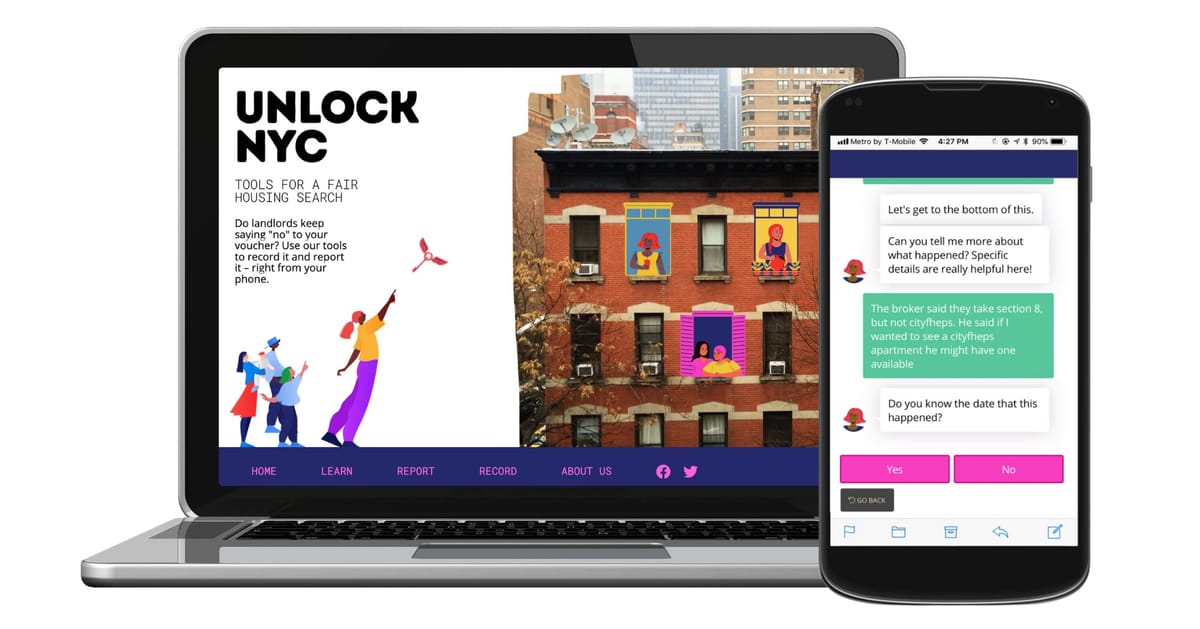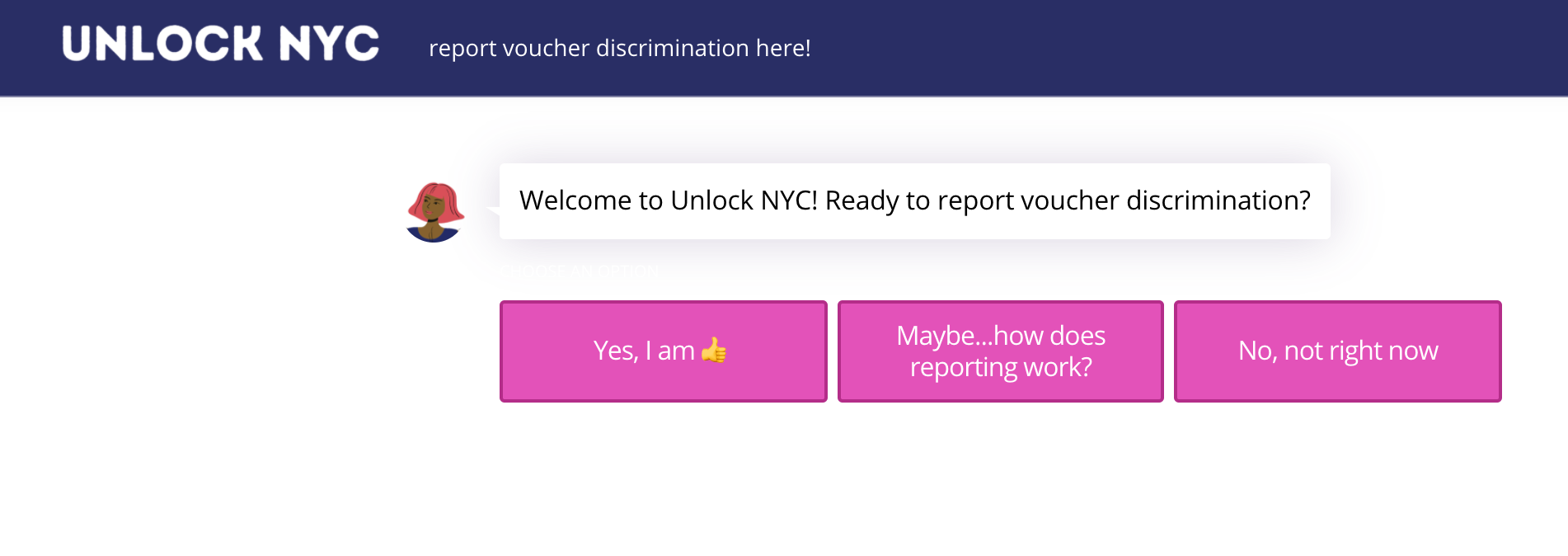Unlocking NYC Housing Opportunities For Residents On Rental Assistance

About a year and a half ago, four Brooklyn neighbors joined forces to help open more doors for those in desperate need of housing – residents with rental assistance vouchers (Section 8, CityFHEPS, FHEPS, HASA, SOTA to name a few). Launched on December 31, 2020, Unlock NYC is both an educational tool about tenant rights, and a way to report shady brokers and landlords.

It is not uncommon for a low-income resident to call to schedule a viewing for an apartment only to be met with some variant of “Sorry, the unit is no longer available,” “No vouchers,” “The landlord prefers a working professional,” or “We don’t take Section 8 here.” All completely illegal responses. Yet documenting this kind of discrimination is not easy.
The founding team – Manon Vergario, Ashley Eberhart, and Madeline Blount – all Bed Suy neighbors – met through Blue Ridge Labs @ Robin Hood, a social impact incubator on Court Street. However, despite backgrounds in tenant activism and urban studies, none of them had first-hand experience of the kind of discrimination that they hoped to address with this tool, so Jessica Valencia of Bensonhurst joined the team.
Working with Neighbors Together of Bed Stuy and residents directly affected by income-based housing discrimination, the team created and piloted a version of the tool from January through March of 2020. They then worked to refine it through the pandemic with a focus on making it easy to use for those who most need it. The result, Unlock NYC is a web-based tool, with nothing to download, no credit card required, no data sold – though one does need a smartphone to access it.

There is a chatbot that makes it easy to learn about your rights and report incidents of discrimination, and the team hopes to expand it to include an option to record a phone call. . There will be hands-on workshops once pandemic restrictions ease for the residents who need more help.
When they are discriminated against, users can either leave an anonymous complaint, and the team logs it and start documenting where and how discrimination is taking place – a particular landlord, building, or neighborhood, or send a formal complaint report through the tool to the City’s Human Rights Commission for rapid intervention.
The outcome founders hope to be twofold – to educate and empower neighbors to stand up for their rights, as well as expose modern redlining through income discrimination.



